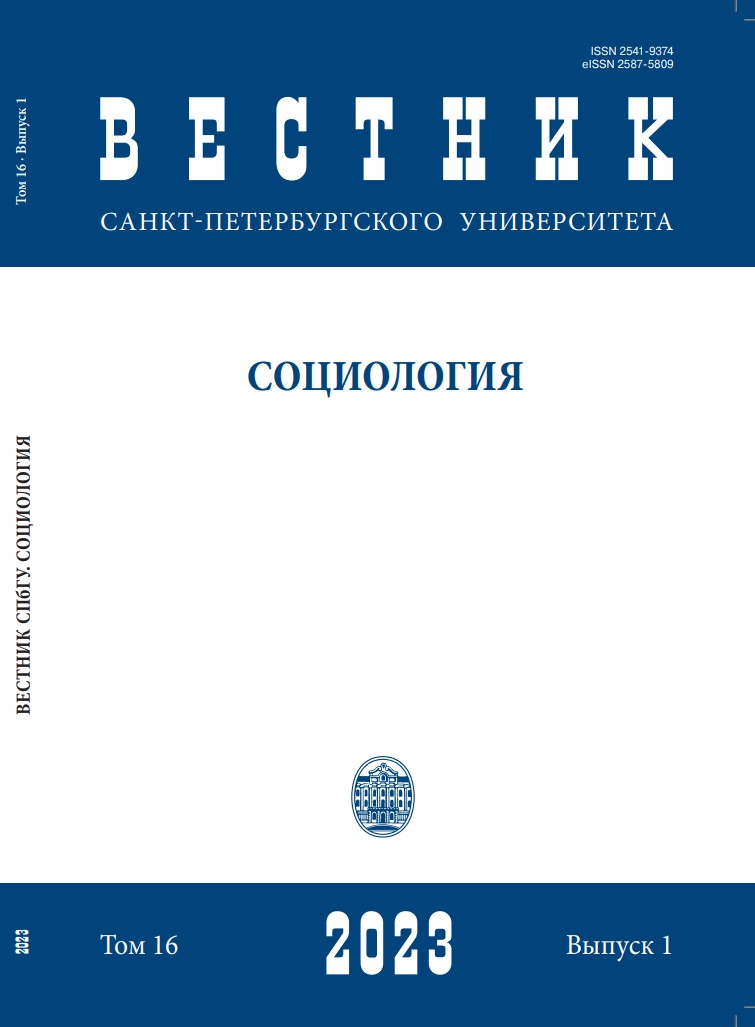Предметное поле исследований активного/отложенного старения: результаты наукометрического анализа и картирования
DOI:
https://doi.org/10.21638/spbu12.2023.101Аннотация
В ХХ и начале XXI столетия глобальная тенденция старения населения и присущие ей черты изменили исследовательскую повестку изучения старших возрастных групп. Кроме того, социальный статус и место пожилых в обществе существенно поменялись. Статья посвящена определению основных предметных областей, находящихся в фокусе исследований активного и отложенного старения в России и за рубежом. Для проведения наукометрического анализа были использованы базы научных публикаций Scopus и eLibrary (РИНЦ). В исследовании использован метод наукометрического картирования, выполненный с помощью программы VOSviewer. В качестве поисковых были выбраны термины: активное старение/долголетие, отложенное старение, здоровье сберегающее поведение, поздняя зрелость, занятость пожилых. Анализ показал рост популярности темы занятости пожилых в последние годы, в том числе гендерно дифференцирующих аспектов. Тематика активности чаще представлена в контексте активного долголетия (старения), хотя на содержательном уровне глобальный процесс старения и его динамика заметно отличаются от ситуации социальной группы пожилых в разных странах. В теме «активность пожилых» четче выражено наличие медицинской тематики. Тематическая кластеризация ключевых слов и словосочетаний показала многофакторность изучаемых феноменов и необходимость их мультидисциплинарного изучения. Было обнаружено, что статьи по социальным наукам посвящены как вопросам социальной коммуникации, адаптации, инклюзии, так и медицинским данным и оценкам различных параметров здоровья пожилых, а также экономическим параметрам, сопоставлению статистических показателей старения, психологическим и политическим аспектам старения.
Ключевые слова:
отложенное старение, активное долголетие, наукометрический анализ, тематическое картирование, здоровьесберегающее поведение
Скачивания
Библиографические ссылки
Федерации до 2025 года: Распоряжение Правительства РФ № 164-р от 05.02.2016 г. 2016. URL: http://www.consultant.ru/document/cons_doc_LAW_193464/ (дата обращения:01.12.2022).
Загрузки
Опубликован
Как цитировать
Выпуск
Раздел
Лицензия
Статьи журнала «Вестник Санкт-Петербургского университета. Социология» находятся в открытом доступе и распространяются в соответствии с условиями Лицензионного Договора с Санкт-Петербургским государственным университетом, который бесплатно предоставляет авторам неограниченное распространение и самостоятельное архивирование.




